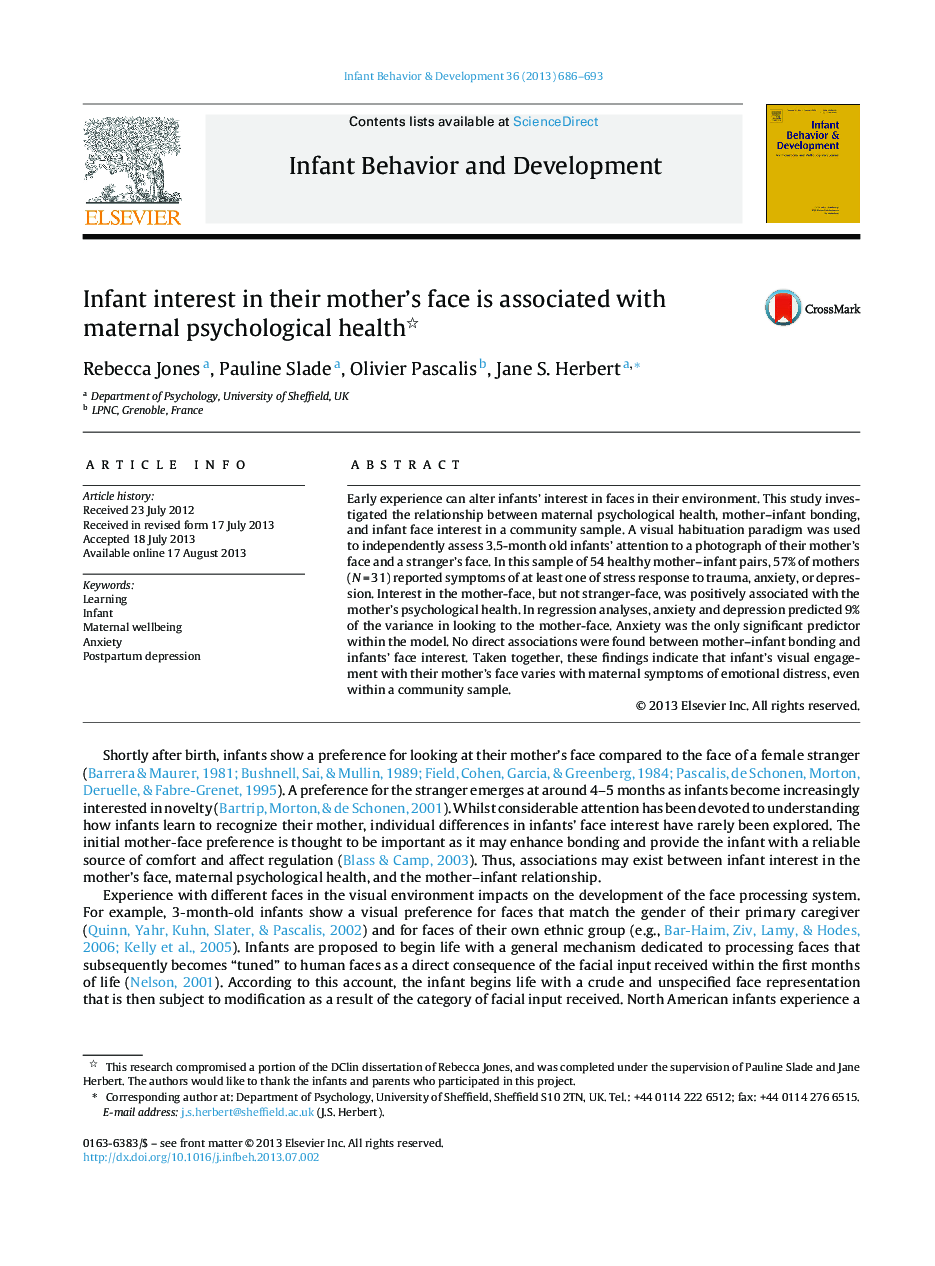| Article ID | Journal | Published Year | Pages | File Type |
|---|---|---|---|---|
| 10452722 | Infant Behavior and Development | 2013 | 8 Pages |
Abstract
Early experience can alter infants' interest in faces in their environment. This study investigated the relationship between maternal psychological health, mother-infant bonding, and infant face interest in a community sample. A visual habituation paradigm was used to independently assess 3.5-month old infants' attention to a photograph of their mother's face and a stranger's face. In this sample of 54 healthy mother-infant pairs, 57% of mothers (NÂ =Â 31) reported symptoms of at least one of stress response to trauma, anxiety, or depression. Interest in the mother-face, but not stranger-face, was positively associated with the mother's psychological health. In regression analyses, anxiety and depression predicted 9% of the variance in looking to the mother-face. Anxiety was the only significant predictor within the model. No direct associations were found between mother-infant bonding and infants' face interest. Taken together, these findings indicate that infant's visual engagement with their mother's face varies with maternal symptoms of emotional distress, even within a community sample.
Related Topics
Life Sciences
Neuroscience
Behavioral Neuroscience
Authors
Rebecca Jones, Pauline Slade, Olivier Pascalis, Jane S. Herbert,
